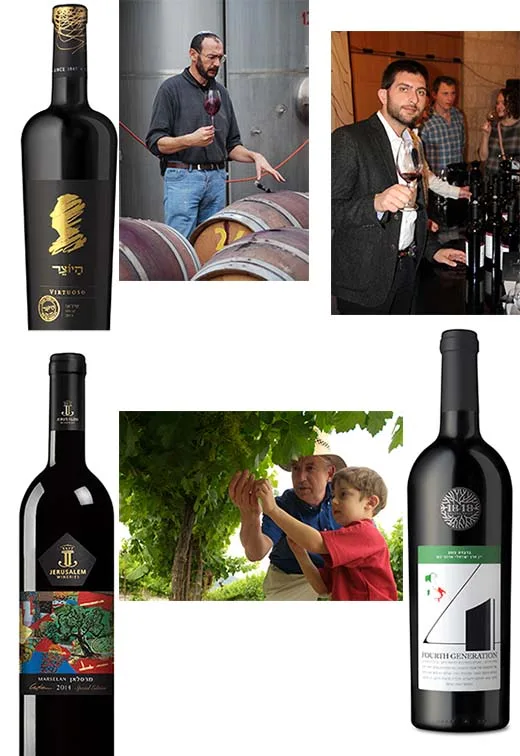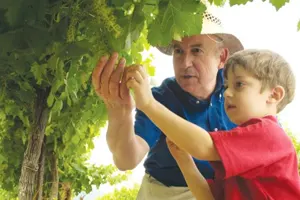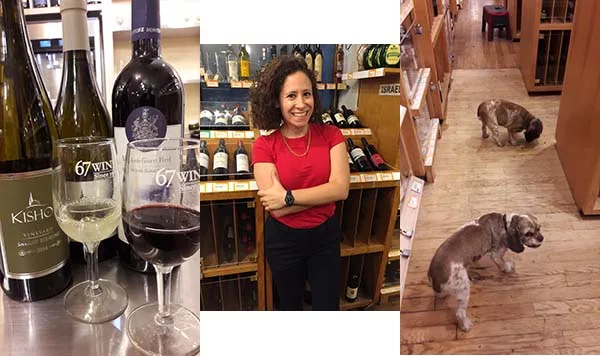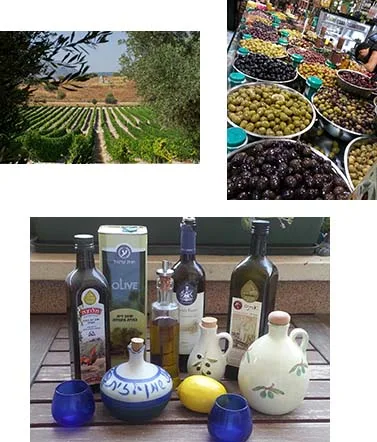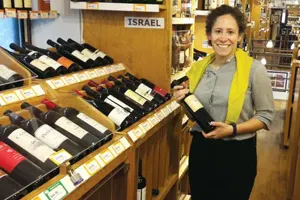If the 1980’s heralded the birth of the quality revolution in Israeli wine, and the 1990’s the development of boutique wineries, the first decade of the 2000’s has witnessed the revival of the historic & traditional wineries of Israel. Large wineries have responded to the industry’s advances by rejuvenating themselves. These famous wineries, part of the history of Israel, are today, without exception, making some pretty good wines. Quality is the new name of the game and in the competitive wine industry of today, wineries have no alternative but to sink or swim.
The change began with a newly expressed wish to reduce the dependence on kiddush wine and grape juice. This is what I call liquid religion. However they not only expressed the desire to focus more on table wine, but they were also determined to go for quality.
Internationally trained winemakers were employed, new wineries built, existing wineries refurbished and for the first time ever, these wineries started to focus on their vineyards in a more serious way realizing that quality wineries ‘grow wine’ and not grapes. The most visual result of the change, was the new names that were introduced. Carmel Mizrahi, Eliaz, Efrat and Askalon, were consigned to the dustbin of history, to be replaced by the names we are familiar with today such as Carmel Winery, Binyamina, Teperberg and Segal.
The original names are important, because they are a reminder that the modern Israeli wine industry did not begin in the 1980’s. Yet the advances these wineries have made in the 2000’s, has shown that it is not only the new & boutique wineries that can produce quality wine.
More recently three more wineries, deeply imbedded in the liquid religion market, have also began their own revolutions. They are: Arza, Jerusalem and Zion. These are big wineries, comfortably in the list of the top ten largest in the country.
Arza is a winery founded by the Shor family in 1847/8. It was the first recorded winery in Israel, though in those days it was a tiny, domestic winery specializing in sweet wines for a religious market. The miracle is that 170 years later the Shor family still exists and is still making wine. As the family has grown, they have split into three separate wineries, all situated in the same street of Mishor Adumim.
Arza is managed by Moti Shor, the seventh generation. They are a large operation specializing in grape juice, Kiddush wine and inexpensive supermarket wines. Yet they have decided to break away from the traditional image by forming a new boutique winery called Ha’Yotzer. They appointed an internationally trained winemaker and a new CEO to lead the new winery to the promised land.
The winemaker Philippe Lichtenstein is tall, bespectacled, born in France and studied in Montpelier. He has a thick French accent, which is an asset to anyone in the wine trade. But he is also a very good winemaker with an excellent palate. He is best known for being winemaker and later manager of the Zichron Ya’acov Wine Cellars.
His story, of bringing the tastes and flavors of Provence to the hills of Jerusalem, has been adopted by the winery and the name of the winery itself, (author or creator), reflects on the importance they place on their winemaker.
The wines with brand names like Bereshit, Virtuoso, Lyrika, come in quite a flashy presentation that certainly stands out from the shelf. The labels feature a silhouette, not dissimilar to Opus One, one of the most famous and iconic wine labels.
The Jerusalem Wineries situated in Atarot, northern Jerusalem, is another undergoing a kind of quality renaissance. Founded in 1976, also by a member of the Shor family, it was acquired by the Guetta family in 2006. They ploughed the same furrow as Arza, but have decided to invest in quality. They appointed a new CEO, Col. Erez Weiner, who was better known as senior aide to the Chief of Staff of the IDF, Gaby Ashkenazi, and a new winemaker, Sam Soroka, one of Israel’s finest.
Weiner, (what a great name for someone in the wine trade!), is an impressive figure. Calm, authorative and frightfully organized, he has taken to wine like a duck to water. A bottling crisis must be insignificant to the sort of situation he is used to. He seems to relish the sheer variety of the job which takes in the agricultural aspect in the vineyard, production at the winery, and marketing and sales throughout Israel and overseas.
Sam Soroka must be one of the most experienced winemakers in Israel. He studied wine in Adelaide and has made wine in Australia, California, Canada, France and Israel. He first came here in 2003, worked for Carmel and then Mony. He is also consultant winemaker to Montefiore Winery. Ever the artist, he has certainly become known for making award winning wines at these three wineries.
Jerusalem Wineries celebrates being the only winery within Jerusalem by having a series of wines identified by significant dates of winemaking history using the Jewish calendar. So you will find wines named 2900, 3400, 4990 and 5600. Innovative, even interesting for the wine historian, but slightly complicated. Their new look artist collection labels are brighter and easier to like. Some of the wines are already good and this is a fast improving winery to be watched.
The last winery to have a makeover is the Zion Winery. This is another branch of the Shor family situated in Mishor Adumim, also managed by the seventh generation. In this instance, it is Moshe Shor who is steering the new direction. What they have done quite frankly blew me away. They have made enormous changes, largely unseen, all to the end of investing in quality. They have refurbished the winery totally, introducing the latest technology and the winery is spotless. This is the example for any winery wanting a makeover, but thinking they can cut corners. Others should take heed. Changing a label and a introducing a new name alone is not enough.
However they have done that too. A few years ago they introduced a small winery called 1848 for their new quality table wines. Each label represents a different generation, and the boutique winery is the brainwork of the dynamic Yossi Shor, the eighth generation. The wines are beginning to receive the credit their investment deserves, and more plaudits are most likely on the way.
The three wineries are in the process of making changes. They have all decided on the quality route. Don’t be put off by the confusing nature of their labels, something they share. However, the wines are good and most are very reasonably priced. Farewell liquid religion; Welcome quality and value!
Adam Montefiore has been advancing Israeli wines for over 30 years. He is known as ‘the ambassador of Israeli wine’ and the ‘English voice of Israeli wine’.
Out of the wines I tasted, my favorites were:
Ha’Yotzer Virtuoso Shiraz 2013
Fruity, easy drinking with good balance and a satisfying freshness. Good value. PRICE: 50 ILS
Ha’Yotzer Lyrika GSM 2012
A wine made from Grenache, Syrah and Mourvèdre. Aromas of strawberry, raspberry, light in the mouth with a good acidity. PRICE: 80 ILS
Jerusalem Wineries Marselan 2014
A blend of Marselan, with a little Petit Verdot and Merlot. Marselan is a cross between Cabernet Sauvignon and Grenache. It has settled well in Israel. The wine has aromas of bramley fruit, with the oak quite apparent and has a refreshing finish. The label features a painting by David Gerstein. It is part of a limited edition offer of four wines. PRICE: 55 ILS
Jerusalem Wineries 4990 Petite Sirah 2013
Perfumed aroma of violets, with sweet ripe fruit, wrapped in vanilla with a long finish. Good wine. PRICE: 75 ILS
1848 Winery Fourth Generation Barbera 2013
Fresh nose of wild berries and cherries, lively flavor, with a surprisingly tannic finish. Best served lightly chilled. PRICE: 85 ILS
1848 Winery Seventh Generation Merlot 2011
Made mainly from Merlot with a little Syrah & Petite Sirah, the wine has delicate aromas of plum and blackberries and a rounded flavor with a long finsh. A fine wine. PRICE: 120 ILS


